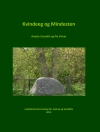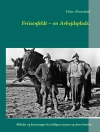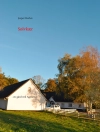Emerging infectious disease outbreaks have transformed the very nature of urban life worldwide, even as the extent and experience of pandemics are shaped by the planetary urban condition. Pandemic Urbanism critically investigates these relationships in a world faced with its first pandemic on a majority urban planet.
The authors reveal the social and historical context of recent infectious disease events and how they have variously transformed the urban fabric. They highlight the important role played by socio-ecological processes associated with the global urban periphery – suburban or post-suburban zones and hinterland areas of ‘extended’ urbanization – changing mobility patterns, and new forms of urban governance and pandemic response. The book develops novel insights for post-pandemic urban governance and planning grounded in the quest for social and spatial justice. In doing so, it reveals a paradox at the heart of pandemic urbanism: urban life enables contagion to spread easily, yet at the same time offers unique possibilities to contain and respond to disease outbreaks.
Multidisciplinary in approach and written by experts in the field, this book is an invaluable primer on the origins, pathways, and management of infectious disease.
Tabla de materias
1 Introduction: Emerging Infectious Disease and the ?Urban? Condition
2 Landscape Political Ecologies of Disease: Tracing Patterns of Extended Urbanization
3 SARS and the Global City
4 Ebola and African Urbanization
5 COVID-19 and Extended Urbanization
6 Health Governance on a Planet of Cities
7 Urban Planning and Infectious Disease Revisited
8 The City after the Plague
Sobre el autor
S. Harris Ali is Professor of Sociology at York University.
Creighton Connolly is Assistant Professor in Urban Studies at The University of Hong Kong.
Roger Keil is Professor of Environmental and Urban Change at York University.












